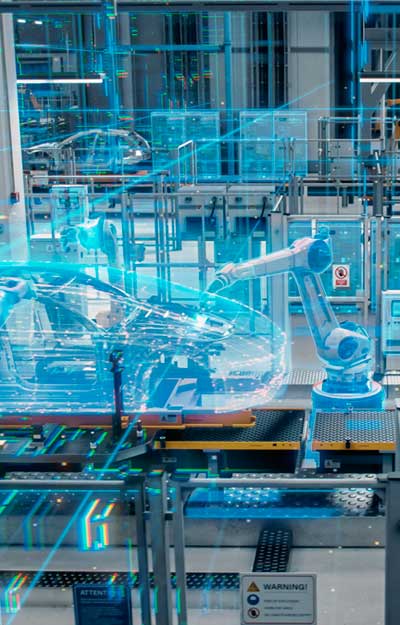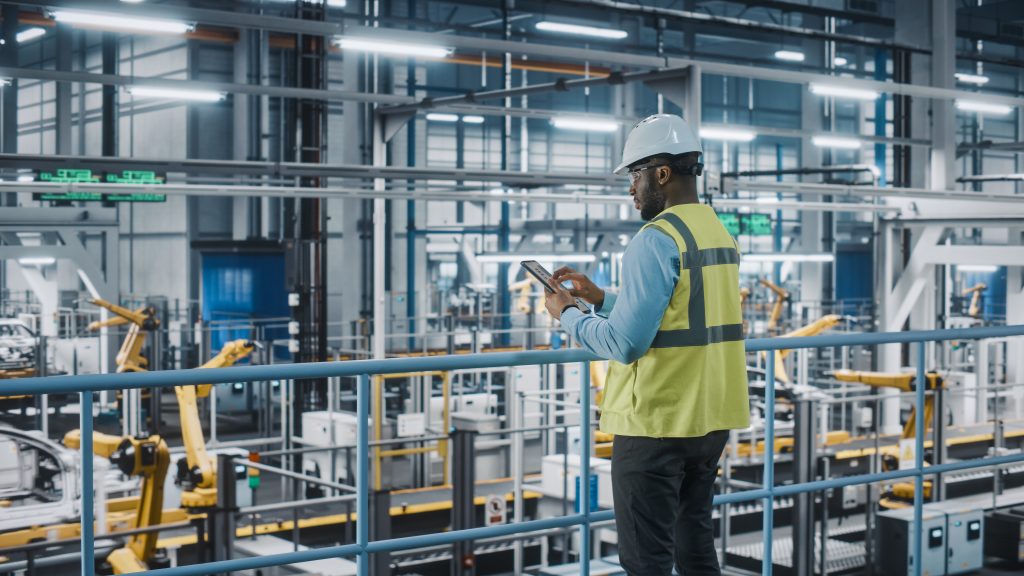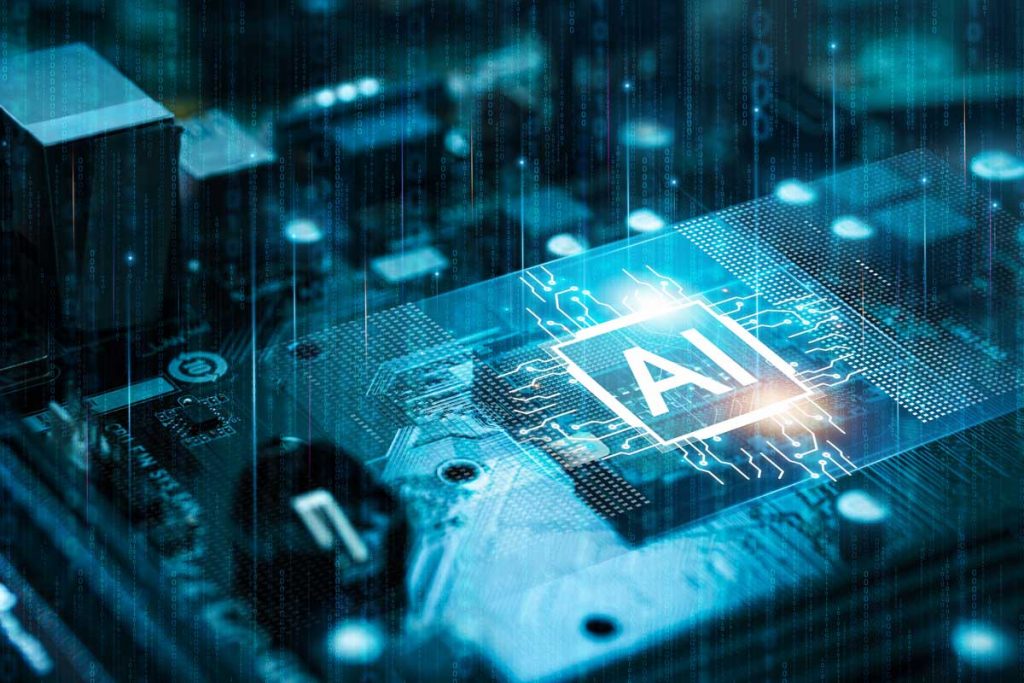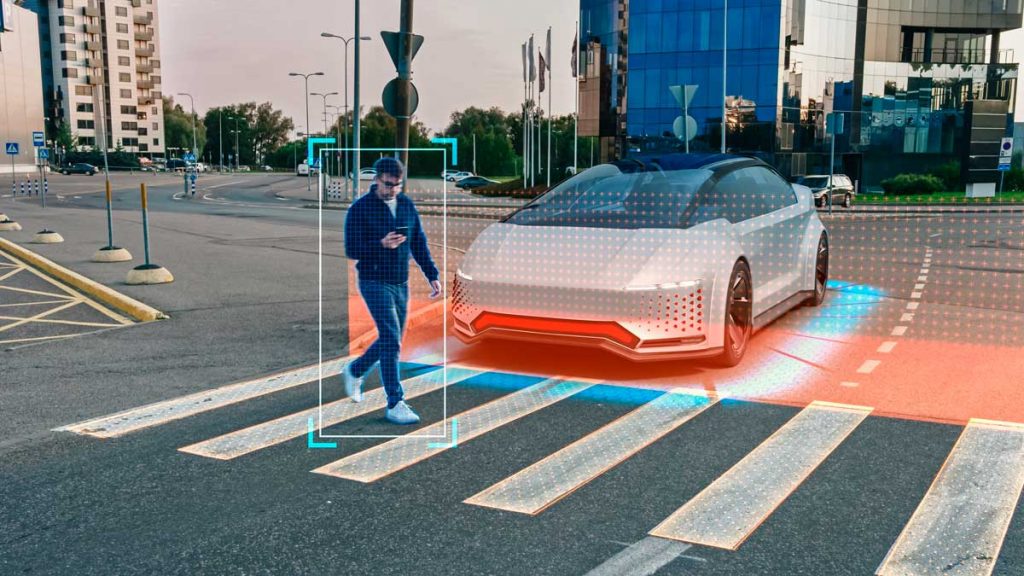Major automotive and transport infrastructure companies are forever changing the core of their business to allow artificial intelligence to take on a more prominent role.

The AI technologies for the automotive industry market was worth around $2.3 billion in 2022 and is projected to reach $7 billion by 2027, with an annual growth rate of 24.1% over five years.
A figure that should also include the development of sensor-based infrastructures such as smart parking, automated number plate readers at entrances and exits, and the software used by Cabify and Bolt to increase the efficiency of journeys with data on traffic, the geolocation of cars and users, or expected demand.
In any case, applied artificial intelligence has become, as stated in a report by McKinsey, a consultancy firm, the cutting-edge technology that automotive companies are using the most. The report analyses 3,500 industrial companies that specialize mainly in autonomous driving, connectivity, electrification and shared mobility.
Uber has announced that it is preparing an AI assistant powered by ChatGPT and the EV Mentor program to help answer questions about its fleet of electric vehicles. The feature, which allows users to give priority to electric vehicles (EVs), is already available in major US cities such as New York and Los Angeles, and international capitals such as Paris and Madrid.

Thanks to Haomo, a Chinese startup, Hyundai is about to launch its first electric vehicle equipped with generative AI in the Asian country. Haomo’s system is inspired by OpenAI’s popular ChatGPT and can be updated in real time to optimize driver decision-making with traffic data. There are already twenty vehicle models using different versions of the DriveGPT system in the world’s second largest economy.
Xiaomi is also making things difficult for Tesla. The smartphone maker is planning to launch an artificial intelligence device for EVs in the coming months, which would allow autonomous navigation in complex environments, parking, and a 360-degree top-down camera view. This device will be integrated into vehicles such as the SU7, which Xiaomi itself has already started manufacturing. What’s more, if the annual production targets for this model were 76,000 units at the beginning of 2024, by December this had already catapulted to 130,000.
The integration of AI into sustainable mobility, as we can see, is already huge. And one of the reasons is its enormous versatility, which has a direct impact on the engineering and research and development of vehicles and their components.
In fact, some companies use it to create and manage virtual worlds where they ‘train’ the algorithms for electric autonomous driving in contexts as diverse as the car stopping at a zebra crossing or doing so when an unsuspecting pedestrian steps in front of it and causes a crash. Errors and weaknesses in the models can be detected earlier and scenarios can be created that allow us to understand why an autonomous electric vehicle has not passed a certain virtual test.


Another area where AI is being applied in electric cars is supply chain management. As stated in an analysis published in the Harvard Business Review, large language models can be programmed, for example, to answer questions such as how much raw material each supplier has today, what is the cheapest option for shipping items from factory F to retailer R, or what the additional transportation cost would be if total demand for products increased by 15%.
It is also possible for company strategists to make decisions in real time after asking the system which factory was the most productive last week or how efficiency can be increased in fulfilling contracts.
Artificial intelligence is also used to anticipate environmental, social and governance risks. Companies are already using it to conduct massive internet searches and huge databases to find records of undue pollution, poor waste management and recent corruption scandals involving their suppliers. According to a recent McKinsey survey, 70% of consumers considered sustainable manufacturing to be an important criterion for whether or not to buy a vehicle.

Autonomous cars and energy consumption

AI is also useful for manufacturing autonomous electric vehicles. An example: car delivery times are being reduced thanks to the combination of AI and special cameras used in the inspection and review phase of their surfaces. Companies such as BMW at its Regensburg plant use cameras to scan surfaces which are capable of detecting minimal variations in the paint.
Foxconn, the largest iPhone producer, has been collaborating for months with the world’s largest chipmaker, NVIDIA, to develop factories based on artificial intelligence that will produce applications for self-driving cars, generative AI tools and robotic systems. Its goals also include advancing the digitalization of manufacturing and inspection workflows and, ultimately, the development of robotic platforms and electric vehicles supported by a type of generative AI based on large-scale language models.
According to a comprehensive study in the World Electric Vehicle Journal, artificial intelligence has become an essential ingredient for managing the energy consumption of electric vehicles through advanced machine learning algorithms, neural networks and optimization techniques. Additionally, according to the study, aspects of machine learning such as reinforcement learning, which mimics the trial-and-error learning process of humans, “are particularly effective in managing energy in real time.”
The World Electric Vehicle Journal study also concludes that “AI applications extend to fault diagnosis and predictive maintenance of electric storage and propulsion systems, ensuring greater reliability and longer battery life.” In parallel, it warns, artificial intelligence makes it possible to strengthen cybersecurity and offers “personalized driving experiences adapted to driver preferences and environmental conditions.”
The convergence between electric vehicles and artificial intelligence is enormous, both from the point of view of manufacturers and users or suppliers. And if this were not enough, mobility infrastructures are also integrating it in their race towards greater sustainability and the automation of cities.
AI can no longer be separated from electric vehicles, from the different levels of autonomous driving and car-sharing services, or from smart cities. The future has been taking great strides for years without us realizing.
Write: Gonzalo Toca